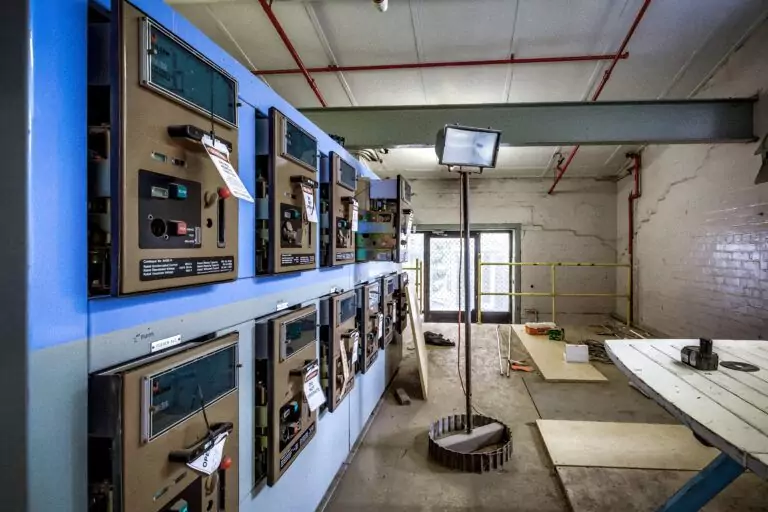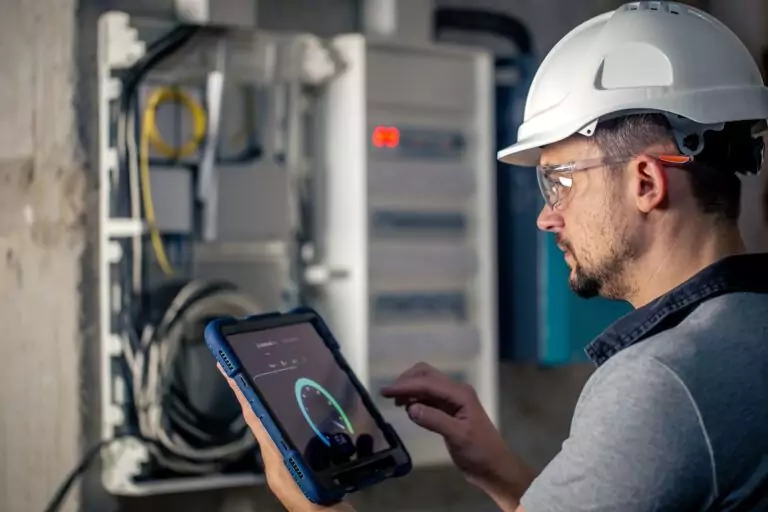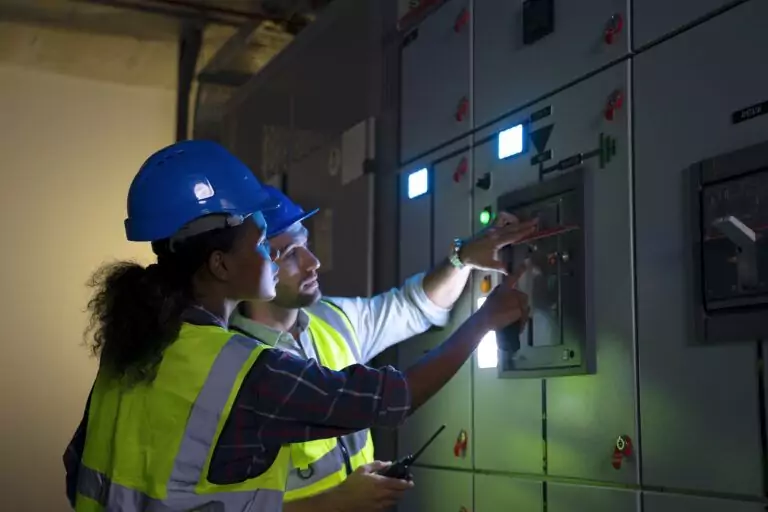Have you ever wondered about the brains behind the electrical systems that power our world? Electrical engineers are the brains behind the design, development, and maintenance of the essential electrical components and systems that keep our modern life running smoothly. From the lights in your home to the smartphone in your hand, electrical engineers play a crucial role in creating and improving the technologies we depend on every day.
They’re not just about wires and circuits; their work spans project management, safety compliance, and groundbreaking research in renewable energy and electronics. In this article, we’ll dive into the multifaceted roles and responsibilities of electrical engineers, shedding light on how they shape the technology landscape and contribute to various industries. Whether it’s designing the electrical systems for cities or developing the next generation of electric vehicles, electrical engineers are at the forefront of innovation, ensuring our electrical needs are met with efficiency, reliability, and safety. For those inspired by these diverse responsibilities, exploring electrical engineering careers can provide valuable insights into the exciting opportunities available in this dynamic field.
What Are the Primary Roles of an Electrical Engineer?
Electrical engineers play a pivotal role in designing, developing, and maintaining electrical systems and components that are essential for modern life. Their primary roles encompass a broad range of activities, from conceptualising new electrical equipment to improving existing technologies. At the heart of their profession, electrical engineers are tasked with the creation of innovative solutions to meet the growing demands for sustainable, reliable, and efficient electrical power and electronic systems.
This involves the design and testing of electrical equipment, including electric motors, machinery controls, lighting, and wiring in buildings, automobiles, aircraft, and a myriad of other products. Furthermore, electrical engineers are responsible for ensuring that projects adhere to safety standards and regulatory compliance. This includes conducting detailed simulations and analyses to predict and rectify potential issues before they arise, ensuring the safety and reliability of electrical systems.
Another crucial role of electrical engineers is project management and collaboration with other engineers and technicians. This involves overseeing the production of electrical equipment, ensuring projects meet specifications, stay within budget, and are completed on schedule. Effective communication skills are essential, as electrical engineers must be able to convey complex concepts to non-experts and work alongside professionals from other engineering disciplines.
Lastly, electrical engineers engage in research and development (R&D) activities to advance the field of electrical engineering. They strive to innovate and develop new technologies or improve existing ones, contributing to advancements in areas such as renewable energy, telecommunications, robotics, and electronics. In summary, the primary roles of an electrical engineer are deeply intertwined with the innovation, development, and maintenance of electrical systems and components.
Their work is crucial in pushing forward technological advancements, ensuring safety and efficiency, and addressing the challenges of modern electrical and electronic needs.
Designing Electrical Systems for Buildings and Cities
Electrical engineers play a crucial role in designing the electrical infrastructure that powers our buildings and cities. Their work involves the meticulous planning of electrical systems to ensure safe, efficient, and sustainable power distribution. This includes integrating renewable energy sources, implementing smart grid technologies, and designing energy-efficient lighting and heating solutions, all of which aim to contribute to modern and environmentally friendly urban landscapes.
Developing Electrical Equipment Like Motors and Navigation Systems
In equipment development, electrical engineers leverage their expertise to innovate and enhance the functionality of a broad spectrum of devices. This encompasses the design of electric motors used in household appliances to industrial machinery, as well as the development of sophisticated navigation systems critical for the automotive and aerospace industries. Their contributions are pivotal in improving the efficiency, functionality, and safety of these devices.
Testing Electrical Installations to Ensure Safety and Efficiency
A critical responsibility of electrical engineers is to ensure the safety and efficiency of electrical installations through comprehensive testing. They conduct rigorous evaluations of electrical systems and components to identify potential hazards and ensure compliance with strict safety standards and regulatory requirements. This meticulous process is essential for preventing electrical accidents and guaranteeing the longevity and efficiency of electrical installations.
Supervising the Manufacturing of Electrical Devices, Including Smartphones
Electrical engineers play a crucial role in the manufacturing process of electrical devices, including in-demand consumer electronics such as smartphones. They oversee production, ensuring devices are manufactured to precise specifications and quality standards. Their expertise makes the manufacturing process efficient, cost-effective, and capable of producing devices that meet the evolving needs of consumers.
Through their supervision, electrical engineers play a crucial role in driving the innovation and reliability of the latest technological advancements.
What Specific Responsibilities Do Electrical Engineers Have?
Electrical engineers shoulder a variety of specific responsibilities critical to the development, implementation, and maintenance of electrical systems. They start by analysing customer or project needs, which informs the creation of detailed specifications for electrical systems. Utilising tools like CAD software, they design and integrate electrical components, ensuring each piece aligns perfectly with the project’s requirements.
A significant part of their role involves ensuring compliance with both national and international safety standards, which is essential for the certification and safe operation of electrical systems. Additionally, they are tasked with troubleshooting to identify and rectify any issues within existing systems, safeguarding efficiency and reliability. Through these responsibilities, electrical engineers ensure the seamless function and advancement of electrical systems across various industries.
Analysing Customer or Project Needs for System Requirements
Electrical engineers begin their workflow by carefully analysing the specific needs of customers or projects. This crucial step ensures a comprehensive understanding of system requirements, laying the groundwork for the development of a tailored electrical system.
Creating Detailed Specifications for Electrical Systems
Upon understanding the project’s needs, they proceed to create detailed specifications for the electrical systems. This meticulous process involves defining every aspect of the system’s design, ensuring all project objectives are addressed and can be realistically achieved.
Designing and Integrating Electrical Components Using CAD Software
Armed with detailed specifications, electrical engineers utilise CAD software to design and integrate electrical components precisely. This advanced tool facilitates the creation of complex and accurate electrical systems, optimising both the design phase and eventual implementation.
Ensuring Compliance with National and International Safety Standards
Ensuring that electrical systems comply with national and international safety standards is a paramount responsibility. Electrical engineers conduct extensive testing and evaluations, certifying that systems adhere to safety regulations, thus ensuring the protection of users and the environment.
Troubleshooting Electrical Issues in Existing Systems
Finally, electrical engineers are experts in troubleshooting issues within existing systems. This involves identifying the root causes of problems, devising effective solutions, and executing repairs to restore system efficiency and reliability, ensuring the long-term performance of electrical installations.
How Do Electrical Engineers Contribute to Various Industries?
Electrical engineers significantly impact various industries by developing and enhancing technologies critical to modern life. In the energy sector, they drive the advancement of renewable energy sources, contributing to a more sustainable future. Their work in manufacturing leads to the automation of production lines, increasing efficiency and productivity.
In telecommunications, they enhance network systems, improving connectivity and data transmission speeds. The transportation industry benefits from their innovations in electric vehicle technology, pushing the boundaries of eco-friendly travel. Furthermore, their research in semiconductors and nanotechnology propels the electronics industry forward, enabling the creation of smaller, more powerful devices.
Through these contributions, electrical engineers play a pivotal role in advancing technology across multiple sectors, shaping the future of our world.
Developing Renewable Energy Sources in the Energy Sector
Electrical engineers spearhead the development of renewable energy sources, such as solar and wind power, significantly contributing to the energy sector’s shift towards sustainability. Their work ensures the efficient capture, conversion, and distribution of renewable energy, aiming to reduce reliance on fossil fuels.
Automating Production Lines in Manufacturing
In the realm of manufacturing, electrical engineers play a crucial role in automating production lines. They design and implement sophisticated control systems that boost production efficiency, minimise manual labour, and enhance product quality, propelling the industry towards smarter, more efficient operations.
Enhancing Network Systems in Telecommunications
Electrical engineers are instrumental in enhancing network systems within telecommunications. They develop advanced technologies that bolster the capacity, speed, and reliability of network communications, facilitating faster and more stable internet and telecommunication services to accommodate the digital era’s expanding needs.
Innovating Electric Vehicle Technology in Transportation
In transportation, electrical engineers lead the charge in innovating electric vehicle technology. Their efforts focus on creating more efficient batteries, advancing charging infrastructure, and designing superior electric drive systems, crucial steps in making electric vehicles more accessible, reliable, and eco-friendly.
Conducting Cutting-Edge Research in Semiconductors and Nanotechnology
Electrical engineers are deeply involved in conducting cutting-edge research in semiconductors and nanotechnology, pushing the frontiers of electronics and materials science. Their groundbreaking work facilitates the development of smaller, more powerful, and energy-efficient electronic devices, revolutionising technology across various fields and applications.
What Skills Are Essential for an Electrical Engineer?
Electrical engineers require a robust set of skills to navigate the complexities of their field effectively. A deep understanding of electrical theory and electronic systems is foundational, enabling them to conceptualise, design, and troubleshoot sophisticated electrical systems. Proficiency in specialised software, such as AutoCAD and MATLAB, is essential for designing and analysing these systems with precision.
Collaborative skills are also vital, as electrical engineers often work in multidisciplinary teams, requiring effective communication and project management abilities. Additionally, advanced problem-solving and analytical skills are crucial for identifying and addressing issues in system design and functionality. Keeping abreast of the latest IEEE standards and NEC regulations ensures their work complies with industry norms and safety standards, underscoring the importance of continuous learning and adaptation in this rapidly evolving field.
Understanding of Electrical Theory and Electronic Systems
A fundamental skill for electrical engineers is a deep understanding of electrical theory and electronic systems. This comprehensive knowledge base enables them to design, analyse, and refine complex electrical systems effectively, ensuring optimal functionality and efficiency.
Proficiency in AutoCAD and MATLAB
Proficiency in AutoCAD and MATLAB is indispensable for electrical engineers. Mastery of these sophisticated tools is crucial for the accurate design and analysis of electrical systems, facilitating the simulation and modification of systems to achieve peak performance.
Collaborative Skills for Working in Multidisciplinary Teams
Electrical engineers must possess strong collaborative skills to contribute effectively within multidisciplinary teams. This involves the ability to communicate complex ideas clearly and collaborate with professionals from various engineering disciplines, working together towards shared objectives.
Advanced Problem-Solving and Analytical Skills
Advanced problem-solving and analytical skills are paramount for electrical engineers. They are tasked with identifying and resolving intricate issues in electrical systems, requiring innovative thinking and solutions to ensure system reliability and efficiency.
Up-to-Date Knowledge of IEEE Standards and NEC Regulations
Maintaining up-to-date knowledge of IEEE standards and NEC regulations is crucial for electrical engineers. Staying informed on the latest industry standards and safety regulations is essential, as it ensures that their work complies with current best practices, maintaining the safety and integrity of electrical systems.
Powering Innovation Across Industries
Electrical engineers are the driving force behind the electrical systems that power our modern world, from designing and building infrastructure and developing cutting-edge equipment to ensuring safety compliance and advancing renewable energy technologies. Their expertise spans multiple industries, requiring a blend of technical knowledge in electrical theory, proficiency in design software like AutoCAD and MATLAB, and strong collaborative skills for multidisciplinary teamwork. With responsibilities ranging from project management to research and development, electrical engineers continue to shape our technological landscape through innovation and precision.
Vista Projects leverages the expertise of skilled electrical engineers as part of our integrated, multidisciplinary team, delivering comprehensive electrical solutions across the energy, manufacturing, and industrial sectors. Our electrical engineering specialists work collaboratively with other disciplines to optimise system design, reduce total installation costs, and ensure compliance with safety standards throughout project execution.
Ready to power your next project with expert electrical engineering solutions? Contact Vista Projects today to discover how our integrated approach can drive efficiency, safety, and innovation for your electrical system needs.









